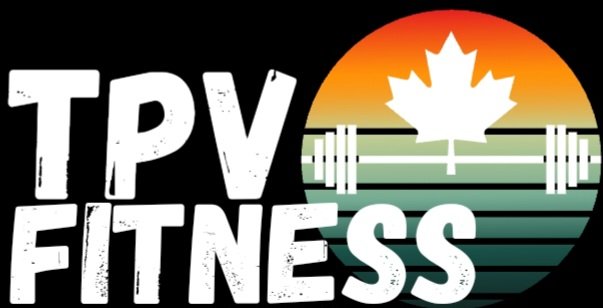Understanding Cortisol: The Stress Hormone
What is Stress?
It is what you feel when life’s demands exceed your ability to meet those demands.
Stress and your health: Can you identify yourself with any of these?
• In a perpetual state of “hurry hurry”
• Twenty- five hours of stuff to do in a twenty- four hour day
• Depression
• Fatigue
• Low sex drive
• Trouble concentrating
• Abdominal weight gain
Did you know that the top ten drugs prescribed in this country is for stress-related diseases!
Stress is real, and we all have experience it to one extreme or the other. It can be short-term, acute, long-term to chronic.
Stress can be physical, emotional. It is that fight-or-flight mechanism.
Type A,B,C Stress Personality
Type “A” personality is stereotyped as high-strung stress monsters. Type “B” are more laid-back folks who always roll with the punches. Type “C” is the chronic stress and elevated cortisol levels. Most are in-between type “A” and “B”. We are all vulnerable to chronic stress and can become a type “C” personality if we are not careful. If we encounter anything that causes us to feel stress, our cortisol levels go up.
What Does The Cortisol Hormone Do?
It has many functions; it stimulates the release of glucose, fats, and amino acids for energy production. In the liver, it stimulates the breakdown of glycogen into glucose. In the adipose tissue (stored body fat), fatty acids are released in response to cortisol stimulation.
In the skeletal muscles, cortisol promotes the release of amino acids, which are either used for directly by the muscles for energy or sent to the liver for conversion into glucose. The problem with the last scenario is if it continues to release amino acids that are not needed by the muscle, it is stored away in the liver. Not good for weight maintenance if this happens. It controls mood and well-being, immune cells and inflammation, blood vessels and blood pressure. Under conditions of stress, cortisol normally maintains blood pressure and limits excessive inflammation.
What Happens When We Have Chronically Elevated Levels of the Cortisol Hormone?
It can lead to adverse effects on diverse body systems.
• Muscle and bone loss
• Fat gain
• Elevated blood sugar
• High blood pressure
• Suppressed immune-system function
• Changes in memory and mood
The Effects of The HSD Enzyme
Researchers around the world are beginning to understand the importance of the HSD enzyme. HSD (Hydroxysteroid Dehydrogenase) converts cortisol into cortisone. Depending on how fast it converts inactive cortisone into active cortisol- that determines the rate of fat storage in many people (abdominal, brain, liver). For example you can have low stress and have low cortisol levels in your blood, but if you have had high HSD activity, then your fat cells would always ”see” ( or be exposed to) a relatively high level of cortisol. This means your fat cells would always be receiving a potent signal telling them to “store fat”- so matter what you did in terms of exercise or diet or stress management, you would be always fighting against your own metabolism. Researchers describe an elevation of HSD levels and activity in human fat cells that may support a disrupted metabolism leading to abdominal fat gain. Whether or not stress or cortisol levels are elevated.
Every major pharmaceutical company in the world is hard at work developing synthetic controller of HSD, because they understand slowing the activity of this enzyme down may be the “Holy Grail” to stopping the epidemic of obesity and diabetes around the world.
Controlling HSD Activity Naturally
Flavonoids- consuming more flavonoids should be a major dietary goal. Apples, onions, grapefruit, soybeans.
Another amazing supplement for HSD balance is orange citrus peel (300mg/day) (Super flavonoid)! It also reduces your cortisol levels, body weight, body fat and waist circumference. It also reduces cholesterol levels, boosting mood and reducing fatigue.
Raising your testosterone and growth hormone level is another natural way to help regulate the HSD enzyme and lose body fat.
Supplements for Testosterone and Muscle Mass (my go to list):
• Eurycoma – 5-100mg
• DHEA- 50 -100mg
• Zinc- 15-45mg
• CLA – 3-6 grams
Stress Management and Avoidance
So how do we get our stress under control?
• Avoid stress (whenever you can)
• Take a time out with social media and your cell phone for at least a 1hr+ a day and after 8pm.
• Take a full day off each week – No work. Take this day to reflect, relax and self-care and self-time.
• Get a massage
• Take a bath
• Take a long weekend
• Take a yoga class
• Crank up the tunes
• Get some sleep
• Meditation and Breath work – take a class or download an app to focus on 5-10min mediation or breath work. It works!
Where Does Exercise Fit In?
Exercise does help burn calories, but more importantly as part of a weight control regimen lies in its profound effects on modulating levels of cortisol, testosterone, growth hormone, serotonin and metabolic rate. Exercise also improves our body’s sensitivity to both insulin and cortisol.
It plays a big role on regulating your hormone levels.
What Foods to Eat to Help Lower Cortisol Levels
• Whole grains, omega-3 fatty acids (salmon, walnuts, flaxseeds, chia seed)
• Dark chocolate- 70% or higher
• Vegetables, legumes
• Foods high Vitimin C
• Probiotic rich foods – kefir, sauerkraut
• Green tea
• Nuts and seeds
More information on supplementation to help control your cortisol/HSD levels please contact me.
Coach Steph.
References: The Cortisol Connection, Author, Shawn Talbot PH.D FACM, Hunter House Publishers,
ChatGPT 3.5, How to Regulate Cortisol Levels

